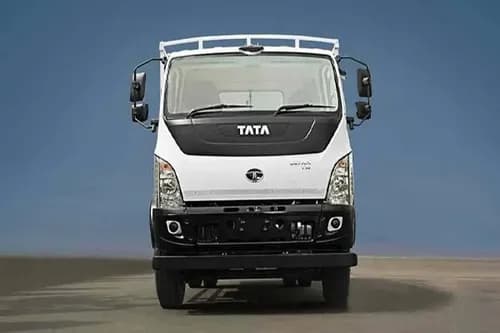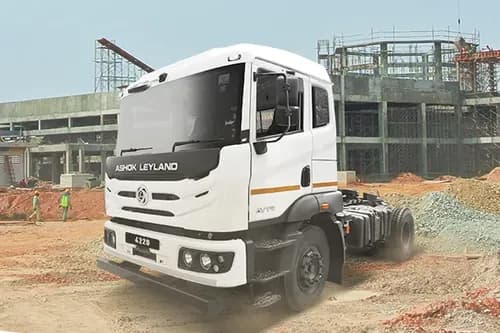Ad
Ad
Ad
Irrigation Strategies for Rabi Crops: Dos and Don’ts

Irrigation is the process of applying the right amount of water on crop fields to avoid water wastage and improve the growth and development of the crops. There are various methods and types of irrigation systems available in India that ensure the proper growth of diverse plants and crops. This article will detail a list of irrigation strategies for rabi crops along with dos and don’ts of rabi crop irrigation.
Most Common Rabi Crops in India
Rabi crops or rabi harvest, also known as winter crops, are crops sown during winter and harvested in the spring season. The word rabi comes from the Arabic language and it means ‘Spring’ and rabi in India usually means crops that are harvested during the spring season.
These crops are sown around mid-November after the monsoon rains are over and the harvesting for these crops begins in April or May in India. The most common rabi crops are listed below in detail.
Wheat: Wheat is the most common and widely cultivated rabi crop in India. Wheat is a staple food and is widely grown not just in India but worldwide. The northern states Punjab, Haryana and Uttar Pradesh are the main wheat producers in India.
Mustard: Mustard is the most prominent winter oilseed crop in India. Mustard is cultivated for oil that is largely used as vegetable oil and hair oil.
Chickpeas: Chickpeas also known as ‘Chana’ and ‘Gram’ is another rabi season crop that is widely grown in India.
Barley: Barley is another winter crop that is grown in UP, Punjab, Rajasthan, MP and Haryana states in India. It is mostly grown as a food for animals, especially pigs.
Additionally, crops such as rapeseed, potatoes, onions and oats, masoor and mung beans can also be grown during the rabi season.
Irrigation Strategies for Rabi Crops: Dos and Don’ts
An irrigation strategy will help you save your water and time. An irrigation method is required if you want to improve the growth of crops while also preserving soil nutrients. Below we have provided a detailed list of irrigation strategies for rabi crops to improve crop yield of your farm.
Also Read- Irrigation System: Methods, Types, and Significance
Choose the Right Irrigation Method
The most important step for your crops to grow healthier is choosing the right irrigation method. As mentioned above, there are many irrigation methods available in India. Different types of crops require different amounts of water.
The right irrigation system can provide many benefits such as improved crop yields, reduced dependence on natural precipitation and improved plant health. The best irrigation methods for various types of rabi crops are listed below.
Drip Irrigation: The drip method is beneficial for crops with shallow root systems. It is the best method of irrigation for crops like wheat, onion and potato.
Sprinkler Irrigation: The sprinkler method has a wide range and can be used for winter crops such as mustard, rapeseed and chickpeas.
Furrow Irrigation: Furrow is the best method for rabi crops planted in rows including barley and wheat.
Irrigate at the Right Time
Irrigation timing is also important in the healthy growth of crops. From March to April, temperatures rise and during hot weather, water can evaporate. During this period, the optimal time of irrigation is early morning or late evening when the sun has gone down and the chances of water evaporation are low. The best time for irrigation is 7 pm to 5 am.
Use a Timer for Even Distribution of Water
Water should be distributed evenly throughout the farmland. To do that, use a timer so you don’t overwater the crops. You can cycle the irrigation system 4 minutes on and 4 minutes off. Repeat this cycle three times for watering the crops.
Monitor Soil Moisture Regularly
Soil moisture can help determine if the farmland is underwatered or overwatered. It also helps you decide how much water should be applied to fields. Soil moisture sensor tools can be used for this process.
Dos:
The dos of rabi irrigation are listed below.
- Increase irrigation amount in hotter temperatures
- Keep the water pressure in mind before watering crops
- Apply less water in winter and springtime
- Use low-angle sprinklers
- Group watering needs of crops according to landscape and soil
- Apply mulch to conserve crops
- Give long soaking rather than frequent light watering
Don’ts:
- Don’t overwater or underwater the crops; most crops only need water in root zones about 5-8 inches deep
- Don’t use methods like flood irrigation that waste water and resources
- Don’t over fertilise the soil
- Don’t use faulty or broken sprinklers
- Don’t neglect the soil health
- Don’t use contaminated water
Also Read- Cauliflower Farming: Cultivation, Planting & Harvesting
Conclusion
In conclusion, water irrigation is one of the most crucial aspects for better crop health and yield. Various irrigation strategies for rabi crops explained above will help reduce the chances of damage to your crops and will ensure an increase in the overall crop yield. For more tips and advice regarding various kinds of farming, regularly visit cmv360.
Features & Articles
Electric vs. Hydrogen Commercial Vehicles: Which Fuel is Best for the Future?
Discover the future of transportation with electric and hydrogen vehicles. In this article, learn about the benefits, challenges, and which one is better for India’s comm...
23-Dec-24 12:53 PM
Read Full NewsTop 6 Features of Joy e-rik Three-wheelers in India
In this article, we will discuss the top 6 Features of Joy e-rik Three-wheelers in India and the newly launched models in India....
20-Dec-24 12:05 PM
Read Full NewsBharatBenz 1917R: Features, Price, and Specifications
The BharatBenz 1917R is equipped with the 4D34i engine, a 4-cylinder, 3900 cc powerhouse that provides a maximum power of 125 kW at 2500 rpm. ...
18-Dec-24 12:25 PM
Read Full NewsHow Proper Load Balancing Can Improve Your Truck’s Tyre Life
Here's why Proper Load Balancing is important for your truck and its tyres....
16-Dec-24 01:30 PM
Read Full NewsTruck Engine Overheating: Causes, Symptoms, and Solutions
Engine overheating is a serious issue that can lead to costly repairs and long-term damage to your truck if not addressed quickly. ...
11-Dec-24 12:17 PM
Read Full NewsTop 3 Truck Brands in India to Choose This New Year 2025!
Here are the top 3 truck brands in India to choose this New Year 2025!...
10-Dec-24 12:45 PM
Read Full NewsAd
Ad
Registered Office Address
Delente Technologies Pvt. Ltd.
M3M Cosmopolitan, 12th Cosmopolitan,
Golf Course Ext Rd, Sector 66, Gurugram, Haryana
pincode - 122002
Join CMV360
Receive pricing updates, buying tips & more!
Follow Us
COMMERCIAL VEHICLE BUYING BECOMES EASY AT CMV360
CMV360 - is a leading commercial vehicle marketplace. We helps consumers to Buy, Finance, Insure and Service their commercial vehicles.
We bring great transparency on pricing, information and comparison of tractors, trucks, buses and three wheelers.

























